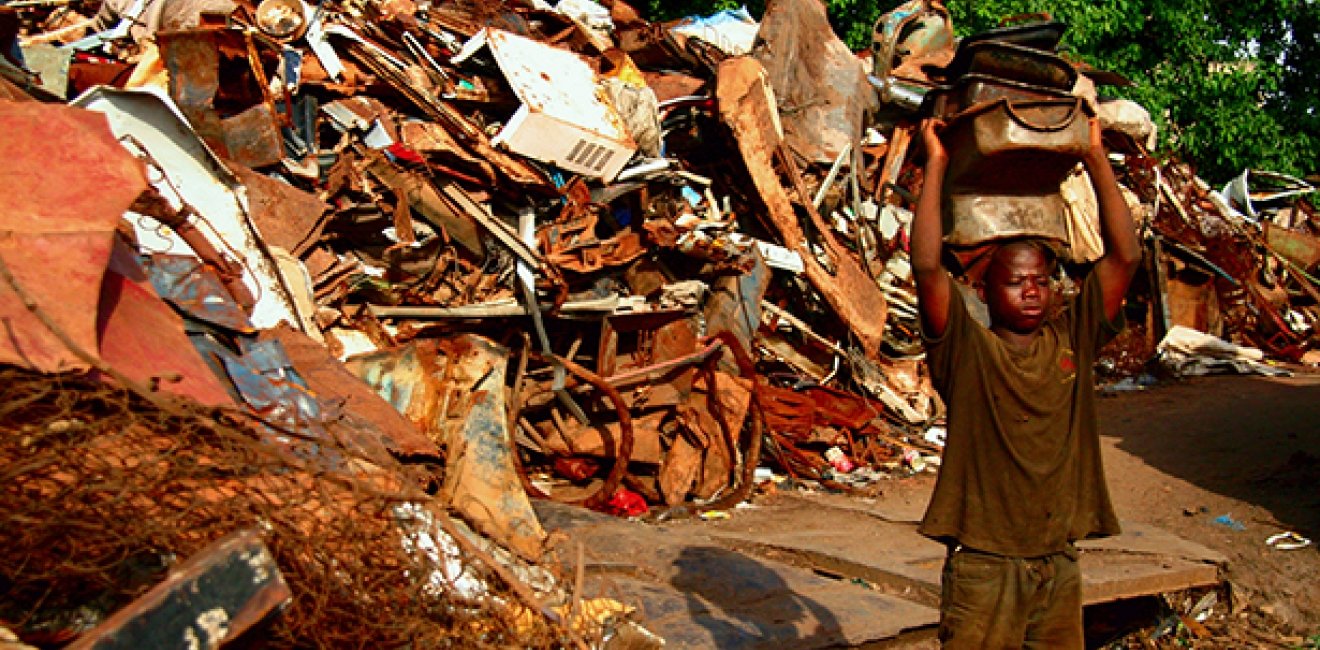
A blog of the Africa Program
Weekly French Translation
According to a study conducted by the National Center for Scientific Research (CNRS), Africa could be the cause for half of the greenhouse gas emissions on the planet in 2030.
Selon une étude du CNRS, l'Afrique pourrait être à l'origine de la moitié des gaz à effet de serre de la planète en 2030.
This article has been translated from French. Click here to read the original version on Jeune Afrique.
Will Africa be the most polluted continent on the planet by 2030? That is the prediction made by a Franco-Ivorian study led by the Aerology Laboratory (National Center for Scientific Research - CNRS/ University of Toulouse III - Paul Sabatier), published on March 11 in Environmental Research Letters .
Researchers envision three distinct scenarios. In the worst case, no measures to reduce emissions of greenhouse gas (GHG) emissions are taken; the second includes pursuing the commitments outlined by the Kyoto Protocol; and the third takes into account specific strategies for emission reductions. Apart the first scenario, the conclusion is clear: Africa will produce between 20% and 55% of global GHG emissions by 2030, as compared to 5-20% today.
Firewood used for heating and cooking, aging automobiles, backfiring motorcycles: it's the daily lifestyles of Africans that somewhat points to this conclusion. "We are not trying to overwhelm Africa," says Cathy Liousse, a researcher at CNRS, "but to encourage Africans to take into account the consequences and impacts of its development." She adds that "if the two-wheeler, two-stroke motorcycles are replaced by four-stroke, or if lower polluting fuels are used for cooking and heating, among other minor changes, there is no doubt that emissions will fall."
In general, industrial pollution is marginal - except in South Africa and Nigeria. In Lagos, the oil industry and its flares are first in line. However, many foreign companies are responsible. If this distinction is not yet taken into account, one day or another, it will become more apparent and foreigners will be invited to the negotiating table. We cannot slow down African development under the guise of protecting the degrading environment, in part by foreign firms.
Article translated by Allie Stauss, Staff Intern for the Africa Program at the Wilson Center.
Photo courtesy of Adam Cohn via Flickr Creative Commons.

Africa Program
The Africa Program works to address the most critical issues facing Africa and US-Africa relations, build mutually beneficial US-Africa relations, and enhance knowledge and understanding about Africa in the United States. The Program achieves its mission through in-depth research and analyses, public discussion, working groups, and briefings that bring together policymakers, practitioners, and subject matter experts to analyze and offer practical options for tackling key challenges in Africa and in US-Africa relations. Read more

Explore More in Africa Up Close
Browse Africa Up Close
State Actions, Narratives, and Ethnicity in Kenya




